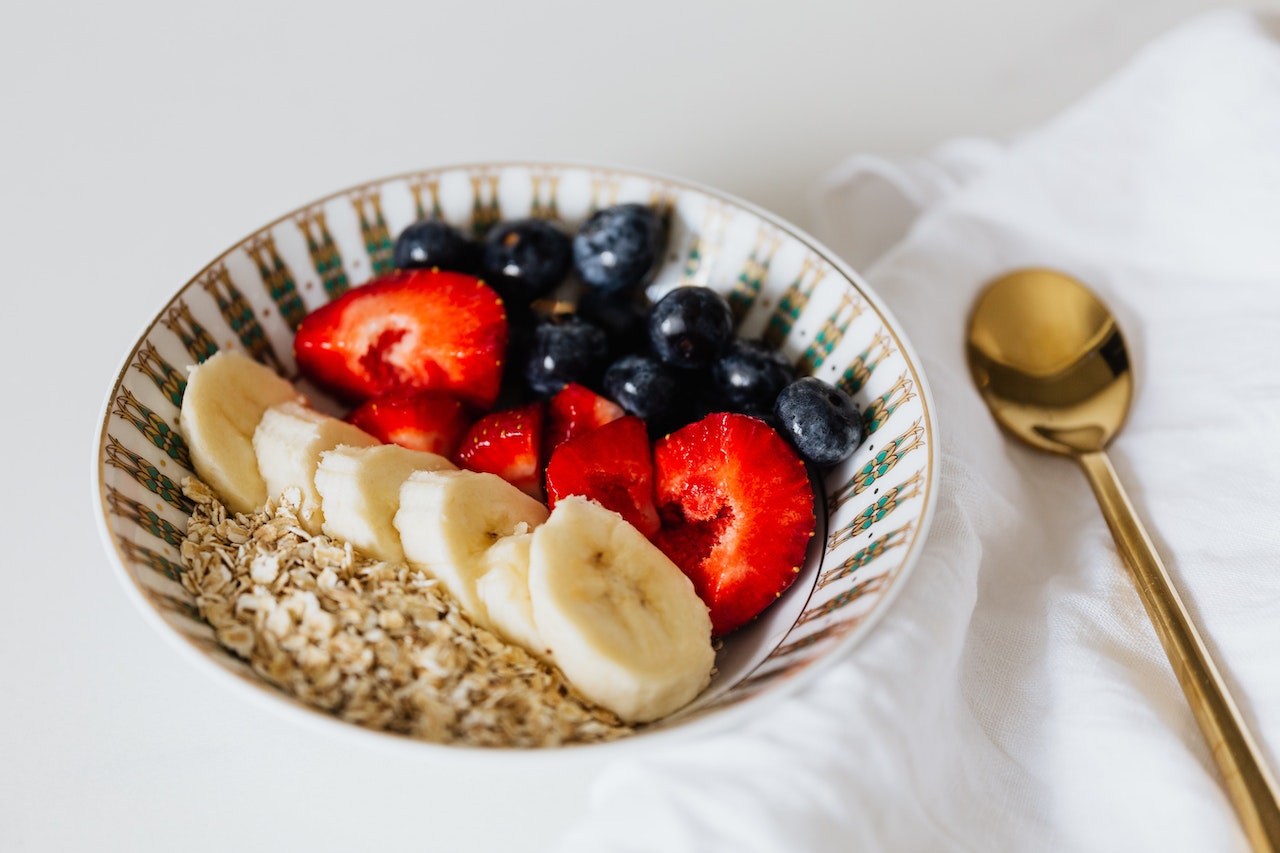
Healthy and balanced nutrition is important for everyone, young and old.
There are three macronutrients (protein, fat, and carbohydrates) that work together in a synergistic effort to fuel your body throughout daily activities. It’s not the same for every person. Everyone has different needs depending upon their goals and activity levels.
Now if your goal is to get that elusive bikini body, adjusting your nutrition to meet that goal is absolutely critical. You can work out all you want, but if you don’t make any changes to what you’re eating, you can potentially sabotage your own efforts in the gym!
So let’s talk about these important macronutrients and nutrition …
PROTEINS: 4 kcal/gram
According to the USDA, 10-35% of our caloric intake each day should come from proteins, and that range definitely depends upon our individual physical needs (i.e. sedentary versus body builder).
Proteins:
- Are essential for all growth and tissue repair in the body.
- Play a key role in the production of essential hormones and enzymes within the body.
- Contribute to a healthy immune system.
- Help to preserve lean muscle mass, keeping your resting metabolic rate at a healthy level.
- Are found in all animal sources, including poultry, seafood, meats, and dairy products. Protein is also found in nuts, legumes, some vegetables and starches, and meat substitutes made from these items.
- Are made of essential and nonessential amino acids. Essential amino acids are those which we need, but that our own bodies cannot make, so we have to get them from our diet. Nonessential amino acids are those that we can make ourselves, so acquiring them through diet isn’t as important.
FATS: 9 kcal/gram
The USDA says that 20-35% of our daily caloric intake should come from fats, but being that they are the most calorically dense of the three macronutrients, we certainly don’t need as much.
Fats:
- Play a key role in growth and development. They help to maintain healthy cell membranes, and they help to cushion all of our internal organs.
- Are necessary to absorb and transport fat-soluble vitamins, including vitamins A, D, E, K, and carotenoids.
- Make food taste good and help satiate our palate.
- You can find them in all animal sources, including poultry, seafood, meats and dairy products. Saturated fats are found in meat and some dairy products, unsaturated fats are found in olives, avocados, nuts and seeds, and trans fats are man-made fats that are found in packaged baked goods, fried foods, snack foods, and margarines.
CARBOHYDRATES: 4 kcal/gram
Carbohydrates are our body’s main source of energy, therefore the body needs them in the highest amounts. According to the USDA, 45-65% of our caloric intake each day should come from carbohydrates.
Carbohydrates:
- Are converted into glucose, which is used by all of the cells and tissues in our body for energy.
- Include fiber, which plays an important role in keeping our gastrointestinal system healthy, as well as decreasing risks associated with heart disease, obesity, and certain types of cancer.
- Are beneficial to our central nervous system (CNS), brain, muscles and organs to function properly.
- you can find them in starchy foods (i.e., potatoes, grains), fruits, dairy products, vegetables, legumes, seeds and nuts.
- Can be complex (i.e. whole grains, legumes, fruits and vegetables), which is where you’ll find the majority of your fiber. They take longer for your body to break down and use, providing your body with a steadier source of energy.
- Can be simple (i.e. baked pastries and deserts, sugar, white flour, white rice, white bread, white pasta, chips, soda, candy, and artificial syrups and sugars), which are typically high in sugar, low in fiber, and cause big energy highs and lows as blood sugar spikes and dips.



